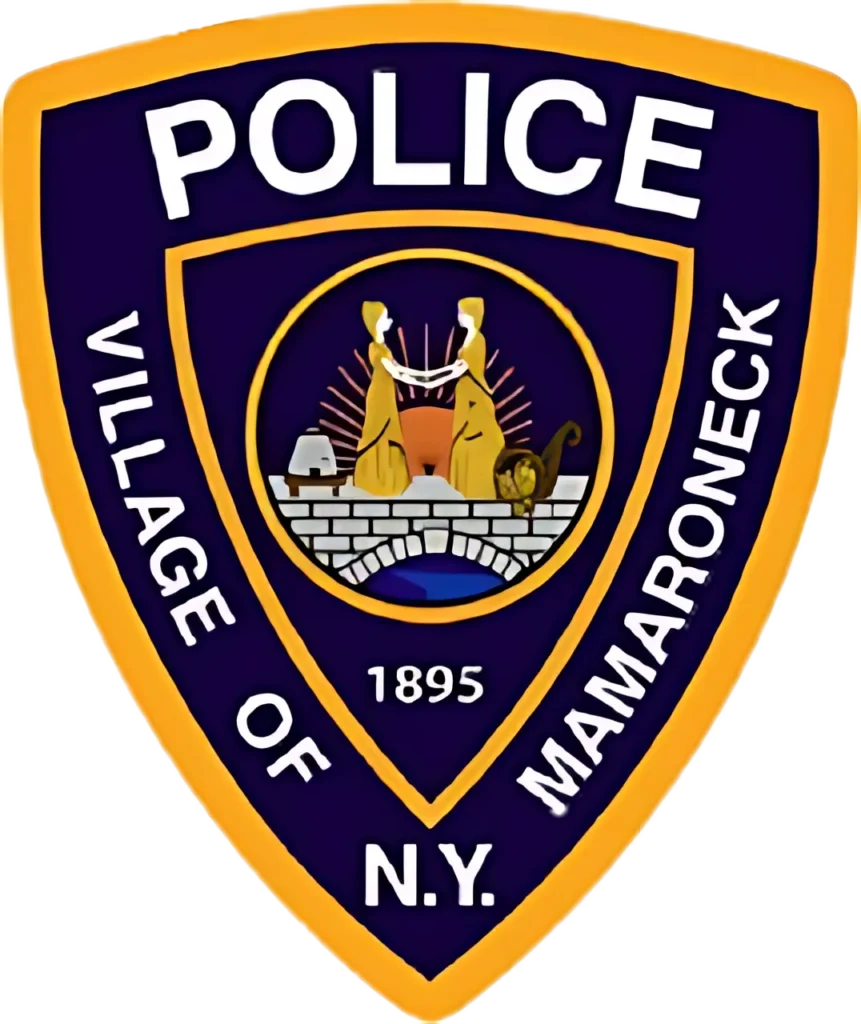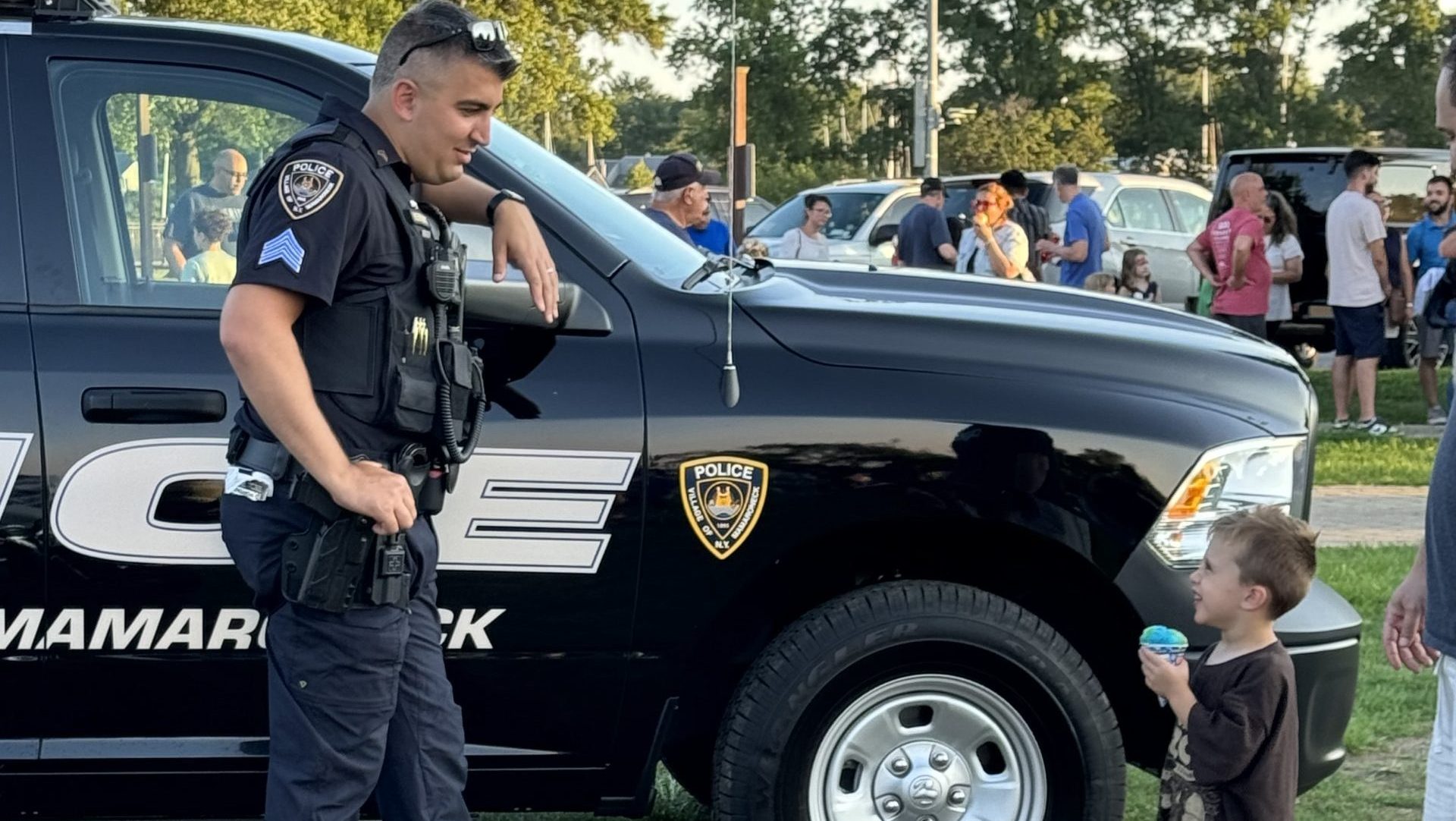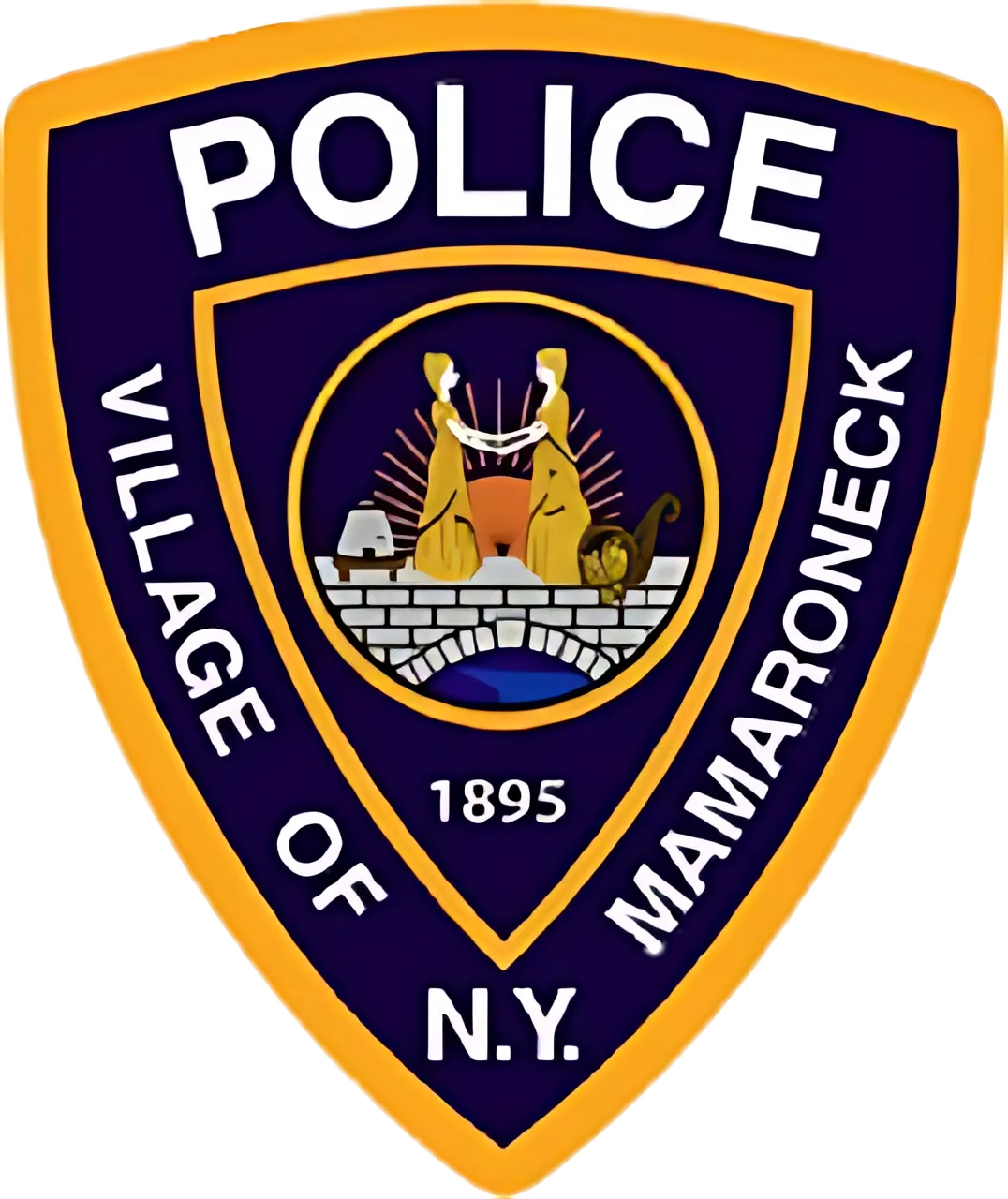Resources


Keeping Our Community Safe — Together
At the Village of Mamaroneck Police Department, protecting and educating our community is our top priority. This page is your hub for crime prevention tips, safety initiatives, and community engagement programs that empower residents and businesses to stay informed and stay safe.
Who to Call
If you believe a child is in immediate danger, call 911 or the New York State Child Abuse Hotline at (800) 342-3720.
Westchester County Child Protective Services investigates allegations of child abuse and neglect when a parent or caretaker is directly responsible, or allows it to occur. Our mission is to protect children, support families, and create a safer community.
Baby Safe Haven: If you are about to have a baby and don’t want anyone to know, Baby Safe Haven provides designated safe places where you can bring your newborn and speak with someone who can help.
Protect the Kids Committee: This committee was created to recommend stronger protections against sex offenders and to ensure consistency in sentencing and monitoring. Keeping Westchester a safe place for children is a shared priority.
Safety at Home: Child safety starts at home. Being aware of hazards helps prevent injuries. Learn more through our Safety Tips for Children brochure (available in Spanish).
Recognizing Child Abuse
Abuse often shows as a pattern of behavior, not a single incident. Bruises or injuries alone do not always indicate abuse—look for repeated warning signs.
Physical Abuse occurs when non-accidental harm is caused by hitting, slapping, burning, or similar acts. Signs include injuries to both sides of the body, frequent unexplained bruises, cuts, or burns, aggressive or disruptive behavior, and fear of going home.
Sexual Abuse involves a child in sexual acts or exposes them to sexual activity. Signs include genital injuries or pain, symptoms of sexually transmitted infections, sexually inappropriate behavior or language, and victimization of other children.
Neglect (Maltreatment) is the failure to provide for a child’s basic needs despite having the means. Signs include malnourishment, fatigue, poor hygiene, inadequate clothing or medical care, frequent school absences, and being left without supervision.
Emotional Abuse is a harmful pattern of behavior affecting a child’s emotional health. Signs include extreme withdrawal or aggression, severe anxiety, self-destructive behaviors, delays in language or thinking, or constant belittling and threats.
How to Report Abuse or Neglect
Call the New York State Central Register at (800) 342-3720 (available 24/7). Reports may be made anonymously. Certain professionals are mandated reporters by law and must report suspected abuse.
Investigation Process
Reports are investigated through interviews, observations, and fact-finding. The investigation determines if abuse or neglect occurred, what services the family may need, and whether the report is “indicated” (credible evidence found) or “unfounded.” All investigations are completed within 60 days.
Prevention
The most effective prevention strategy is open communication between parents and children. Screen babysitters and daycare providers, stay involved with your child’s care, and encourage your children to share concerns. Westchester also partners with programs like Code Adam in public buildings and the New York State Amber Alert Plan to protect children from abduction.
Getting Help
You do not need proof to report suspected abuse—suspicion is enough. Reports are confidential, and your identity is protected. Children are not usually removed from their home immediately unless absolutely necessary.
Special Units
The Multi-Disciplinary Team (MDT) handles all child sexual abuse cases in Westchester. This team includes CPS workers, law enforcement, and the Child Advocacy Center at the Westchester Institute for Human Development for forensic exams and interviews.
The Child Advocacy Program is a collaboration between CPS, the District Attorney, County Attorney, Police, and medical professionals. It minimizes trauma for children by reducing repeated interviews and ensuring coordinated protection.
Contact Information
Report Abuse (24/7):
- NYS Child Abuse Hotline: (800) 342-3720
- Mandated Reporters Hotline: (800) 635-1522
Westchester CPS Office:
10 County Center Road, 2nd Floor, White Plains, NY 10607
Local CPS Office: (914) 995-6028 (Weekdays, 9 a.m.–4 p.m.)
Emergency Services: (914) 995-2099 (Nights, weekends, holidays)
Learn more at the New York State Office of Children Protective Services
Adult Protective Services (APS)
Adult Protective Services (APS), formerly known as Protective Services for Adults (PSA), provides services under the New York State Office of Children and Family Services for adults age 18 and older. APS helps individuals who, due to mental and/or physical impairments, are at risk of harm or unable to meet their own needs, and who have no one able to assist them responsibly.
In New York State, local social services departments are primarily responsible for providing services to impaired adults who may be abused, neglected, or exploited while living in the community. Every effort is made to keep individuals in the community or in the least restrictive environment.
APS workers collaborate with community agencies such as health and mental health providers, programs for older adults, law enforcement, legal services, and the courts. Adults have the right to make their own decisions and can refuse services; however, APS may intervene if someone is at risk and unable to understand the potential harm. In such cases, a mental health assessment and possible court intervention are required for involuntary services.
Services Available
- Investigation and assessment of the adult’s needs and risks.
- Advocacy and case management, including arranging for medical or mental health assessments, applying for benefits, and coordinating services.
- Assistance with finding alternative living arrangements.
- Financial management services, including acting as a representative payee.
- Homemaker and housekeeper services (within set limits).
- Crisis intervention, such as securing access orders, involuntary protective service orders, or orders of protection.
- Counseling for victims and their families.
- Long-term legal interventions, such as pursuing guardianship.
Referral Process
Referrals from professionals, agencies, or concerned individuals are critical, since abused or neglected adults are often reluctant to seek help for themselves. Social Services Law provides immunity from civil liability to those who, in good faith, make a referral concerning an adult who may need protective services.
Contact Information
Westchester County APS Intake Line
- Monday–Friday, 9:00 a.m.–4:30 p.m.: (914) 995-2259
- Evenings, weekends, and holidays (Emergency Services): (914) 995-2099
New York State Office of Children and Family Services (OCFS) Helpline
- Bureau of Adult Services: (844) 697-3505
- Monday–Friday, 8:30 a.m.–5:00 p.m. (excluding holidays)
In a medical or other emergency, always call 911.
For more information, visit the New York State Office of Children and Family Services
Drug and alcohol addiction is a chronic disease that affects individuals, families, and communities. The following resources provide education, support, and treatment options for those impacted.
Learn More About Addiction
- NIDA InfoFacts – Information from the National Institute on Drug Abuse about what happens to the brain when taking drugs and why some people become addicted while others do not.
- SAMHSA – The Substance Abuse and Mental Health Services Administration, part of the U.S. Department of Health and Human Services, provides resources for professionals and the public, including programs, campaigns, treatment locations, and publications.
- New York State Office of Addiction Services and Supports (OASAS) – Helps New Yorkers dealing with drug, alcohol, or gambling addiction. The NYS HOPELine offers free, 24/7 confidential support: 1-877-8-HOPENY (467369).
Support and Recovery Programs
- Alcoholics Anonymous (AA) – A self-help recovery program for those experiencing problems with alcohol use.
- Narcotics Anonymous (NA) – A self-help recovery program for those experiencing problems with drug use.
- Al-Anon and Alateen – Support programs for family members and friends affected by a loved one’s alcohol or drug use.
- Debtors Anonymous – Offers information and support for individuals struggling with gambling problems.
- Partnership to End Addiction – Provides information about different drugs, their effects, and strategies for keeping children drug-free.
Community Coalitions in Westchester County
Westchester County has a network of Community Drug and Alcohol Prevention Coalitions. Their mission is to reduce youth substance use, decrease risk factors, and strengthen protective factors. To learn more or get involved, contact a coalition in your community. (Not every coalition has a website.)
| Coalition | Contact |
|---|---|
| Bedford Drug Abuse Prevention Council | Patty Warble, (914) 234-3227 |
| Croton Community Coalition | Laurie Dean, (914) 262-6365 • crotoncoalition@aol.com |
| iASKCAB – Irvington | Lisa Tomeny • iaskcoordinator@gmail.com |
| Larchmont-Mamaroneck RADAR | Janet Buchbinder |
| New Castle United for Youth | Lea Barth |
| North Castle Cares | Janet Fonte |
| Peekskill Agencies Together | Danielle Satow, (914) 734-8418 • dsatow@cityofpeekskill.com |
| Pelham PACT | Laura Caruso, (914) 738-0482 • pelhampact@gmail.com |
| Rye ACT | Nancy Pasquale • ryeactcoalition@gmail.com |
| Somers Partners in Prevention | – |
| Westchester Coalition for Drug and Alcohol Free Youth | Pat Tomassi, (914) 995-4115 • pat5@westchester.gov |
| White Plains Community That Cares | Bhavana Pahwa, (914) 422-1378 • whiteplainscares@gmail.com |
| Yonkers Coalition for Youth | Edith Cepeda, (914) 332-1300 • e.cepeda@sascorp.org |
Taking care of your mental health is just as important as taking care of your physical health. Whether you or someone you love is experiencing stress, depression, anxiety, substance use, or a mental health crisis, there are services available in Westchester County and beyond to provide support, treatment, and hope.
Emergency & Crisis Hotlines
- 988 Suicide & Crisis Lifeline – Dial 988 for free, confidential support 24/7 if you are in emotional distress, having suicidal thoughts, or need help for a loved one.
- Westchester County Crisis Prevention & Response Team – Available 24/7 to provide immediate mental health crisis intervention. Call (914) 925-5959.
- National Substance Use Helpline (SAMHSA) – Call 1-800-662-HELP (4357) for free, confidential help with substance use issues, available 24/7.
- In an emergency, always call 911.
Local & Regional Support
- Community Counseling Center
Counseling and support services for individuals and families. - Crisis Services – Medicare Resources
Information about outpatient mental health care and resources available through Medicare. - Crisis Services (Westchester County)
Immediate help for individuals facing a mental health emergency.
Inpatient & Treatment Services
- Psychiatric Inpatient Services
Short- and long-term inpatient care for individuals needing intensive psychiatric support. - Chemical Dependency Inpatient Services
Specialized inpatient programs for those struggling with substance use disorders.
Specialized Care
- The Child and Family Institute
Psychological and educational services tailored to children, adolescents, and families. - Contacts – Department of Community Mental Health
A full list of contacts for local programs and providers.
Electric/Gas Emergency
If you smell gas, see sparks, or face any electric or gas emergency anywhere in the Village of Mamaroneck: DIAL 911 IMMEDIATELY
Report an Outage
- Con Edison
- Electric and Gas
- Verizon
- Cable, Phone, Internet
- Optimum
- Cable, Phone, Internet
- Westchester Joint Water Works
- Water Services
Electric/Gas Safety Tips
Stay Away From Downed Wires
- Stay at least 20 feet from a downed power line.
- If a downed wire comes in contact with your vehicle, stay inside and wait for help. If you must get out because of fire or other danger, jump clear of the vehicle to avoid any contact with the vehicle and the ground at the same time. Land with your feet together and hop with feet together or shuffle away; don’t run or stride.
During a Power Interruption
- Contact neighbors to see if their power is off. A loss of power may be the result of a blown fuse or a tripped circuit breaker.
- Don’t use a natural gas or propane range to heat your home.
- Never use outdoor grills or stoves inside.
- Do not use portable generators indoors.
- Keep refrigerators and freezers closed as much as possible. Most food will last 24 hours if you minimize the opening of refrigerator and freezer doors.
Safety after a Storm
- Stay out of flooded or damp basements or other areas if water is in contact with outlets, a furnace or any electrically operated appliance that is energized. The water or moisture may conduct electricity. Contact may cause serious or fatal injury.
- You may have tree debris in your yard following a storm. Wait until power line repairs are complete before you begin your storm cleanup.
- Turn on appliances and sensitive electronic equipment one at a time to avoid overloading circuits.
- Replenish emergency supplies used during the storm.
Safety Tips and Resources
Scams/Fraud
- Social Security Phone Scams (Video)
- IRS Phone Scam (Video)
- Family Emergency Imposter Phone Scams (Video)
- Family Emergency Imposter Phone Scams (Spanish)
- (Video)Gift Card Scams (Spanish) (Video)
- Green Dot Cards
- Mailbox Fishing – Tax Return
- Rental Listing Scam
- Tax Safety (Video)
- Charity Fraud (English)
- Charity Fraud (Spanish)
- Grandkids and Family Scams (English)
- Grandkids and Family Scam (Spanish)
- Health Care Scams (English)
- Health Care Scams (Spanish)
- Home Repair Scams (English)
- Home Repair Scams (Spanish)
- Identity Theft (English)
- Identity Theft (Spanish)
- Imposter Scam (English)
- Imposter Scam (Spanish)
- Money Mule Scams (English)
- Money Mule Scams (Spanish)
- You’ve Won Scams (English)
- You’ve Won Scams (Spanish)
